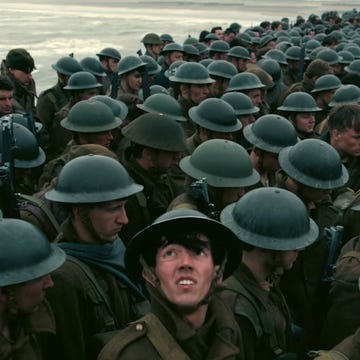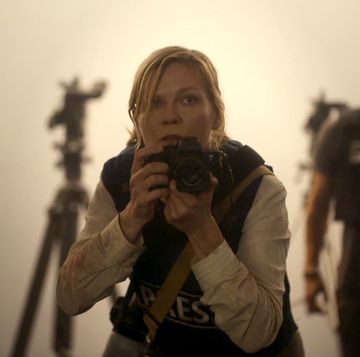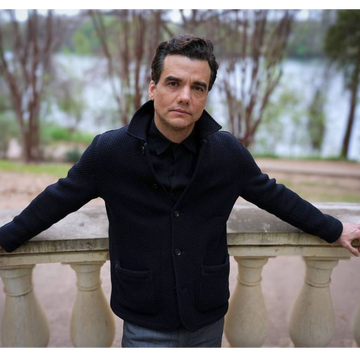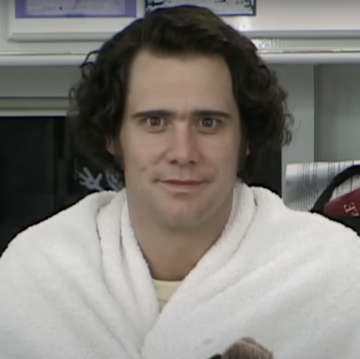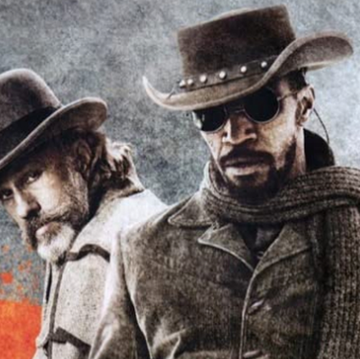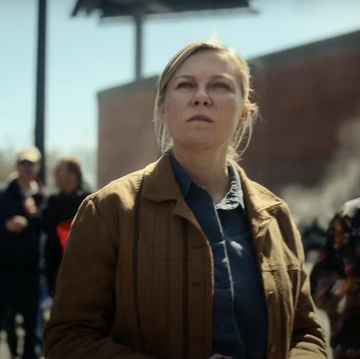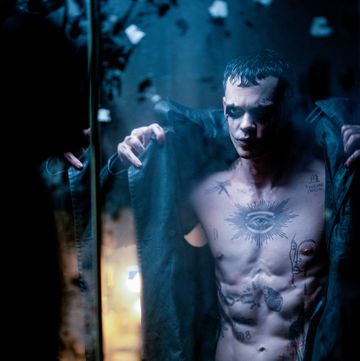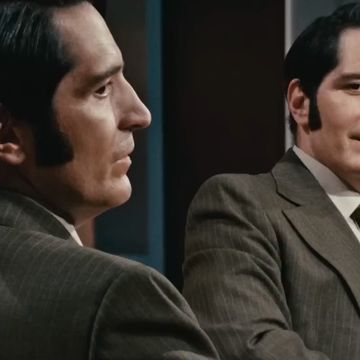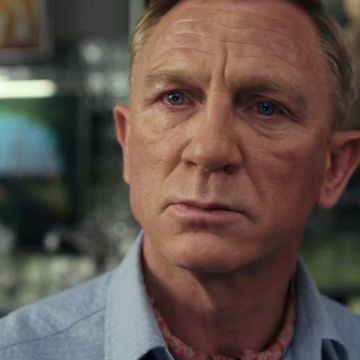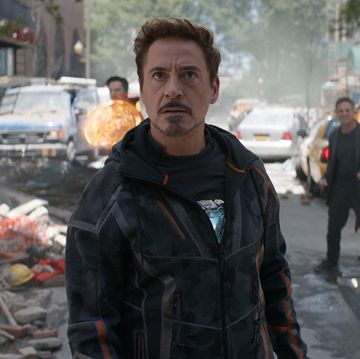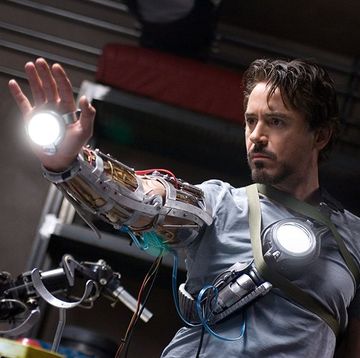The rumors of The Warriors' brutality have been greatly exaggerated. Though it's often cited as one of the most controversial movies ever made — in 2009, Entertainment Weekly ranked it number 14 on its list of the 25 most controversial films ever, way ahead of Caligula, Kids, and Cannibal Holocaust — writer-director Walter Hill still sees The Warriors as a fun little fantasy film. Kind of like a musical. Thirty-five years after pushing its way into theaters, in 1979, where it promptly incited a string of vandalism and violent acts, Hill takes us back to his summer in the city.
ESQUIRE.COM: How did you get involved with The Warriors?
WALTER HILL: My friend Larry Gordon, who produced several of my movies around that time, had optioned the book quite a few years before. He threw it to me one day and said, "You might want to read this." He had not been able to get it going. I read it and said, "Yeah, this would make a really good movie. I don't think anyone will ever let me make it, but it's such a pure chase story." There's an elegance and simplicity to the story that really appealed to me.
ESQ: Considering that the book had been written nearly 15 years before, what did you think about adapting the story for modern audiences?
WH: I felt very strongly that it certainly was not a very realistic book, and I wanted to make it even less so. I wanted to take it into a fantasy element, but at the same time add some contemporary flash. Those were some of the hard ideas we had to get the studio to understand. But we did not get along very well with our parent company. After the movie came out and it did well, everybody was sort of friends. But up until then there was a lot of misunderstanding. They thought it was going to be Saturday Night Fever or something.
Walter Hill in 2012.
ESQ: How long did it take to make the film?
WH:It came together very quickly. Larry had a special relationship with Paramount and we promised to make the movie very cheaply, which we did. So it came together within a matter of weeks. I think we got the green light in April or May of 1978 and we were in theaters in February of 1979. So it was a very accelerated process.
ESQ: How many shooting days were there?
WH: I don't really remember. One of the reasons for the hard feelings with Paramount is that we had gone over our shooting days. We very much miscalculated that. The movie was shot in the summer of 1978 and we were L.A. guys, so we didn't understand how short the nights were in New York City in the summer. And in the contracts at that time, the crew lunches were an hour and everybody dispersed for lunch, so it took a long time to reassemble. So we were basically shooting a work day that amounted to half a Hollywood work day.
ESQ: And you were shooting mostly sundown to sunrise?
WH: Correct. It was almost all outdoors at night. So we had fallen behind because we were just not getting what we thought was a normal day's work. Yet at the same time we shot it very quickly. I think we were supposed to do it in 30 days and we went over that.
ESQ: What was the biggest challenge you faced in getting the film made?
WH: Really it was just getting the physicality of the movie. Shooting in New York is always a pretty good challenge, although the city was very cooperative. I have a permanent warm spot in my heart for New York for several reasons. One of them is that after the movie came out and there were a lot of problems — all the fights and that kind of thing — Mayor Koch stood up for the movie. He didn't attack us. There were a lot of politicians who stood up and were grandstanding, but Koch was very sophisticated and generous in his attitudes, as I've always found New Yorkers to be. I even married one!
ESQ: Did you anticipate that there would be this sort of reaction to the film, with all the violence prompting the studio to pull its advertising and pay for theater security?
WH: I was actually kind of mystified. Look, there are certain aspects of the movie that I think are fairly unique. It's probably not as apparent now, as half of today's movies are fantastical, but I think the most unusual thing about the film was the fact that it didn't present the gang and gang structure as a social problem. It presented it as simply a fact, the way things are, and not necessarily negative. It presented them from their point of view. Up until then, I think all of the movies had been more like, "Let's look at the situation and figure out why these people are not turning out to be doctors and lawyers and dentists." This was a movie that accepted their values and essentially understood that a street gang was a defensive organization rather than an offensive one. It didn't preach to them about middle-class values. And I think that's what made the movie unique. When you look at the movie, it's more like a musical than some grimly realistic thing.
ESQ: You mean there aren't a lot of street gangs wandering around in full baseball attire?
WH: That's right. [Laughs] It was meant to be a dystopian tale about the near future, but at the same time it was meant to be a lot of fun and have humor in it. The humor has always played, which I was happy to note every time I saw it with an audience.
ESQ: Looking at the film now, the violence in it is really mild. Do you think that there was an overreaction to it at the time? As a result of, as you said, the fact that there weren't a lot of films like The Warriors?
WH: I think the reason why there were some violent incidents is really very simple: The movie was very popular with the street gangs, especially young men, a lot of whom had very strong feelings about each other. And suddenly they all went to the movies together! They looked across the aisle and there were the guys they didn't like, so there were a lot of incidents. And also, the movie itself is rambunctious — I would certainly say that.
ESQ: What was the general atmosphere on the set, both in terms of the cast and crew and the residents of the areas in which you were shooting?
WH: We always felt that we were a bit of a beleaguered movie, in the sense that we were low-budget. There were quite a few other movies shooting in New York at the time and we were really the lowest-budget one. And the whole movie shot at night. So this was the least attractive movie from a crew point of view. With the exception of a few people, we seemed to be the last choice. We also had a lot of bad luck. Our leading lady, Deborah Van Valkenburgh, fell and broke her wrist and had to wear a cast, so we had to figure out how to shoot around that. We had a few things like that happen. It was hard out there in the city at night. We had real gangs that we'd run into and sometimes our guys thought they were tough enough to take them on. So they had to be rounded up. We were shooting under an elevated train one night and real gangs literally pissed on us from up above! [Laughs] It seems funny now, but it was not at the time.
ESQ: Was safety a concern for you?
WH: I think there were a couple of territorial things — the usual attempts at extortion — but that was just Brooklyn in those days. We did have a couple of bodyguards to watch over the cast, but I always said that they were really protecting the people from our cast. But I think officially it was the reverse. It was just a tough outdoor shoot, at night. The actors really put up with a lot. We didn't have a lot of money so we had to stick five of them in a dressing room together. And it was the rainiest summer in New York history in 40 years or something, so we spent quite a few hours sitting under a little tent together. But it was a lot of fun. I love the cast. They worked really, really hard for me. And I ran them and ran them. But they almost never complained.
ESQ: Can you talk a little bit about shooting the gang summit at the beginning of the film and how that all came together?
WH: The conclave! Yes, that was our big production number. They went out to real gangs and basically said, "We have very little money. But if you'd like to be in a movie, then come on over!" We were worried that there was going to be trouble, but there wasn't. It had a good feeling to it and I always felt that that scene worked really well.
ESQ: How many people were there?
WH: I doubt if we had more than 200 to 300 people at a time, though we tried to make it look like more. It's meant to be Van Cortlandt Park, but we actually shot in Riverside Park.
ESQ: Were you careful about the permitting process for on-location shooting, or did you have to steal shots on some occasions?
WH: It was all legit. It wasn't really a choice. We had to be quiet after a certain time of night and not do the big speeches or talk through a bullhorn, but it was all permitted. The city was really great. They even gave us access to the subways — though they didn't think too much of some of our guys jumping over the subway turnstiles in the film. I just kept saying: "It's a fantasy movie."
ESQ: Rumors of a remake have been circulating for years. Is that actually going to happen?
WH: I have no idea. Larry Gordon told me they had spent three or four times as much money trying to develop a new script than we spent making the actual movie. Which I guess is the way of things these days. But I've had no contact with the studio since my last meeting with them in about 1979, which was not terribly pleasant. [Laughs] That's the last I know.
ESQ: The movie has really transcended the medium, having been turned into a video game and adapted for a comic book series nearly 30 years after its release. When you were sitting on the set that very first night, did you imagine that you'd still be talking about the film 35 years later?
WH: No. It's certainly a pleasant thing to think that something you did so many years ago still resonates. It's one of those movies that people continue to ask me about and talk about with a smile on their face, so it's a good feeling. It makes you really understand and believe that people like a good story. This is a very simple and elemental story, told in a rather abstract way, but it's a good little survival story. And so it has held up pretty well for a lot of people. Which makes an old guy like me feel good.



